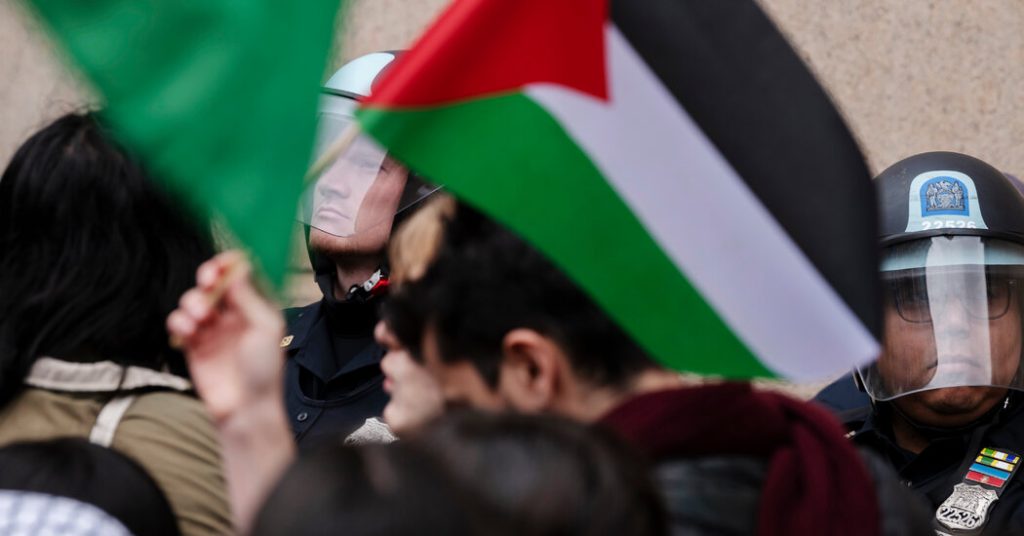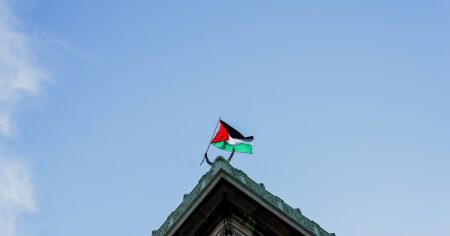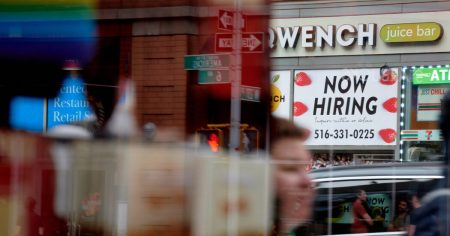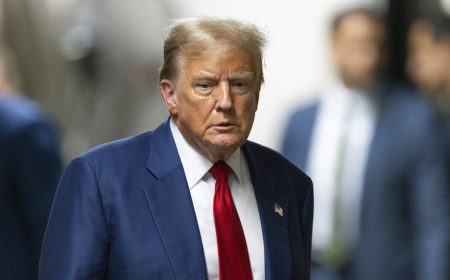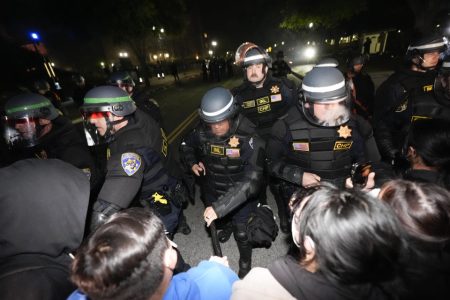A journalist found himself in the midst of a battle over freedom of expression on college campuses unfolding in Manhattan. This battle began when students at Columbia University set up a tent camp on campus to protest the ongoing slaughter in Gaza. The camp was peaceful, but the university’s president asked the NYPD to clear it, resulting in the largest arrest of students at Columbia since 1968. Students felt targeted and unjustly removed from campus for peacefully protesting a cause they believe in.
The students’ determination to keep protesting was evident as a quasi-encampment formed outside police headquarters as they awaited the release of their friends. Despite fears about harming their career prospects, many stood firm in their belief that protesting for Palestinian rights was a moral imperative. The students criticized the use of force by the police and the university, arguing that their peaceful protest did not warrant such drastic actions. They felt that the safety concerns cited by the university were a pretext to suppress their activism.
The university president’s actions were met with backlash from defenders of free speech on campus who viewed her willingness to discipline pro-Palestine professors and students as a threat to academic freedom. Her testimony before the House of Representatives, where she hinted at disciplining students for their speech, further alienated many members of the campus community. Pro-Israel groups even called for her resignation, demonstrating the extent of the controversy surrounding her decisions in relation to the students’ protest against Israel’s actions in Gaza.
The incident raised concerns about the suppression of free speech on college campuses, particularly when it comes to politically sensitive issues like the Israel-Palestine conflict. The right-wing culture war that has been seeping into universities poses a threat to the long tradition of free assembly in American higher education institutions. Despite this, the students involved in the protest remained resolute in their commitment to speaking out and standing up for what they believe in, vowing to continue their activism and not be silenced by university officials or outside pressure.
As the night wore on, the students outside police headquarters continued to cheer and support each other as arrested students were released. Meanwhile, more students set up camp on Columbia’s quad, signaling their defiance and determination to continue protesting. The clash between students advocating for Palestinian rights and university officials enforcing rules against their protests highlighted the ongoing struggle over freedom of expression on college campuses and the challenges faced by those who choose to take a stand on controversial issues.





